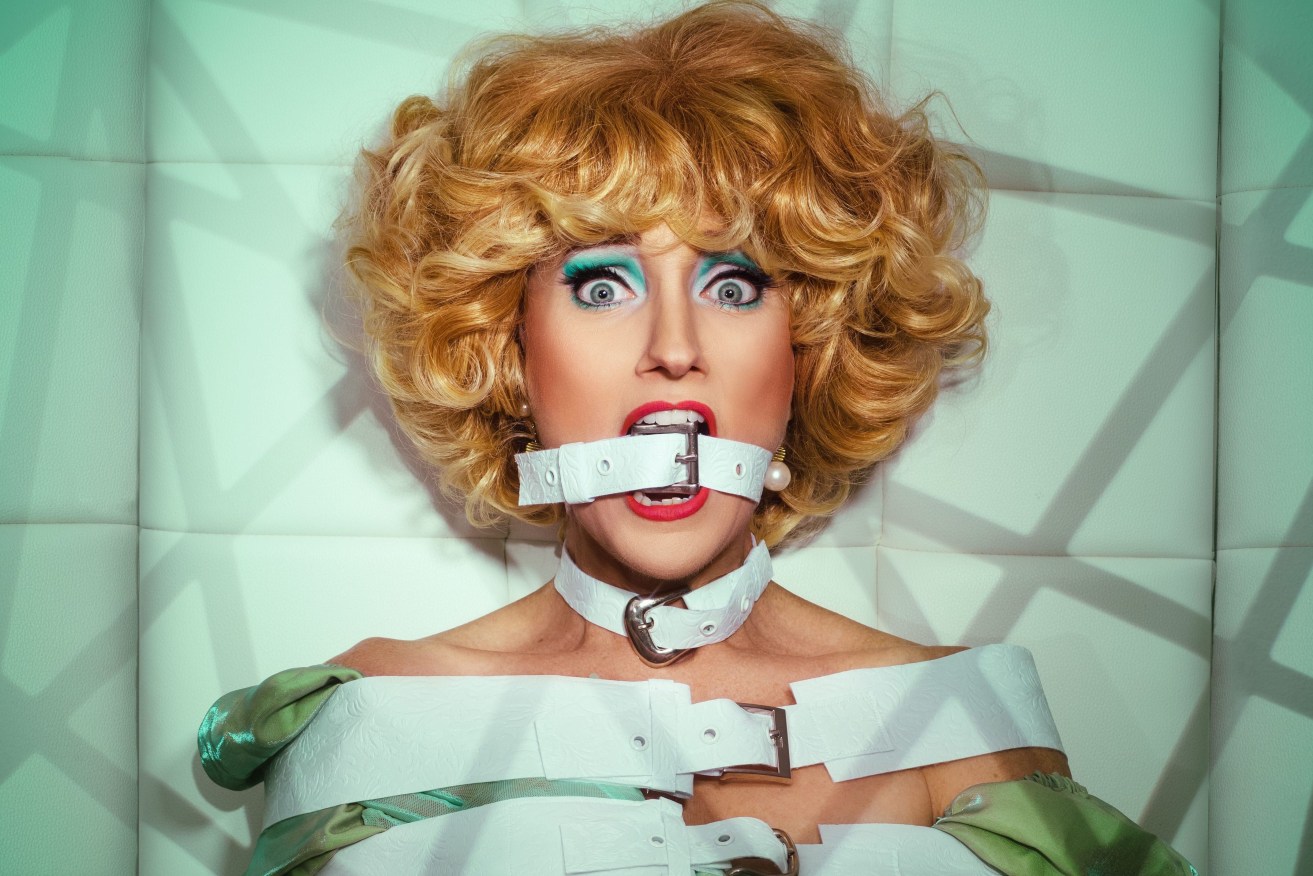Still waltzing along after 35 years, Matilda awards earn a revamp
Queensland’s most outstanding performing arts talent will be honoured in a revamped Matilda Awards at the Brisbane Powerhouse Monday night, with the ceremony also a testing ground for 20 gender inclusive categories.

Leah Shelton will be the main focus on stage during a revamped Matilda Awards on Monday. (Image: supplied)
For Lead Judge and former La Boite Artistic Director Sue Rider, who was honoured with an award in the first Matildas in 1988, the journey has come full circle.
“My take on the awards is that in many ways they are celebrations of the whole industry,” Rider said.
“We must, I think, call out artistic excellence where we can, it lifts the bar for everyone in a way.
“But it also says, okay, we’re all a part of this. And as a panel, now that I’m Lead Judge, which is an exciting and very responsible position, I feel that even moving around and seeing work of emerging artists, which we do in some wonderful tiny little venues that I hadn’t ever known existed before.”
The Matilda Awards judges travel throughout Queensland to see live performances, seeing more than 100 individual productions last year from massive professional productions to groundbreaking smaller Brisbane Festival shows such as Batshit, which leads the field with seven nominations.
Leah Shelton is the only person on stage for the show which uses her family’s personal history to interrogate the myths and fears of female madness.
Awards such as these are vital for emerging artists Shelton said, and hopefully will enable her show that sold out at Metro Arts to have another season.
“It’s basically an exploration of the pathologisation of women’s mental health. Like that’s the kind of area, big meaty topic there that we’re exploring,” Shelton said.
“It’s very much influenced by the story of my grandmother Gwen and her experience basically being incarcerated in an institution in Perth primarily because she wanted to have her own agency.
“That’s my whole ethos, I guess, as an artist is about activism and it’s about questioning those things that we maybe just take for granted in our day-to-day life.
“It’s really nice to get this recognition. It legitimatises it – it’s someone else saying it’s good, besides just me saying, it’s really good, guys.”
She thinks the Matildas’ move to gender neutral categories for acting is a great start – but should part of a longer process.
“That’s one part of what I think is a longer journey towards representation and diversity, and I still don’t think we are there,” she said.
“It’s all about visibility and representation of diverse stories and different spaces. And I think that we can see, even in the nominations that we have now, that we as Queenslanders still have work to do in that area, just in terms of representation and in terms of even the number of people getting the support to make the work. We all just have to keep pushing, and it’s a long term commitment.”
Sue Rider said the changes to the awards hark back to how they started, as for the first 18 years the awards didn’t recognise men and women separately.
“The Matilda Awards put out a survey and asked for feedback from the industry on the awards. And this was definitely an area that came up,” she said.
“What you don’t want to be saying as a judge really is, is this actor female, is this actor male? How do we categorise a non-binary actor? Do you follow the gender of the role that they’ve played? Or what if they were playing a non-binary role or what if they are in a play where they’re playing several characters, both male and female – they’re impossible questions.
“And so in just practically and respectfully it became, it’s almost untenable to actually look at awards in that way. It’s in the interest of inclusivity and also respect for individuals that we’ve taken that question, the question of gender out of the awards.
“Previously in the acting awards, we had a leading female and leading male, and we had a supporting female and supporting male. Now we still have four awards. We have a leading actor and a supporting actor – main stage, and then a leading actor and supporting actor – independent production.
“And the response to our doing that has been really positive. From both main stage companies and independent companies. And I do think that’s fairer.”
The Matildas have also introduced a new best ensemble award which is another way for productions to receive recognition, especially when there is no clear lead.
“They may all be carrying equal weight, and this then gives us the opportunity to actually acknowledge that not only are all these actors working equally, but they are all working at this equal outstanding level and working together,” she said.
“So actors actually have more opportunity now to be named in the Matilda Awards than they did before.”
Receiving six Matilda nominations apiece are Queensland Theatre’s tri-lingual adaptation of Othello for Brisbane Festival and Bunker, a high-intensity dance theatre work staged at Metro Arts. Queensland Theatre’s The Almighty Sometimes is nominated in five categories with QPAC and shake & stir theatre co.’s The Twits and the Metro Arts/Counterpilot co-production of Adrift nominated for four awards each.
Vying for Best Mainstage Production are Fourteen, Othello, Slow Boat, The Almighty Sometimes and The Twits and productions contesting The Lord Mayor’s Award for Best New Australian Work are An Ideal Husband, Batshit, Fourteen, Face to Face and Boy, Lost.












